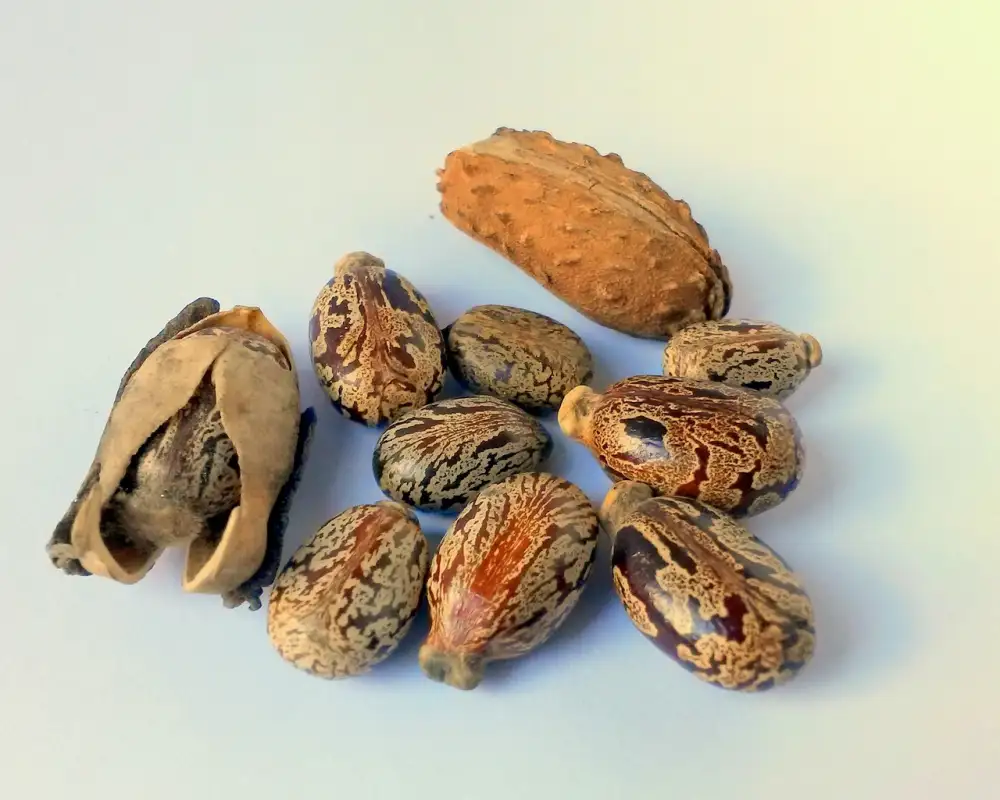Unlocking the Health Benefits of Seed Oils: Your Guide to Nutritious Culinary Delights

- Understanding the Nutritional Composition of Seed Oils
- Promoting Heart Health with Seed Oils
- Managing Cholesterol Levels with Seed Oils
- Boosting Immunity and Fighting Inflammation with Seed Oils
- Enhancing Brain Function and Cognitive Health with Seed Oils
- Supporting Weight Management and Metabolism with Seed Oils
- Exploring the Antioxidant Properties of Seed Oils
- Incorporating Seed Oils into a Balanced Diet for Optimal Health
Seed oils are a valuable addition to any kitchen, offering a range of health benefits that can enhance your overall well-being. Derived from various seeds such as flaxseed, sunflower, sesame, and pumpkin, these oils are packed with essential nutrients and bioactive compounds. They are rich in healthy fats, vitamins, minerals, and antioxidants that promote heart health, boost immunity, support brain function, manage weight, and more. In this article, we will delve into the numerous health benefits of seed oils and explore how they can be incorporated into your daily diet for optimal health.
Understanding the Nutritional Composition of Seed Oils
Seed oils are packed with essential nutrients that contribute to overall health and well-being. These oils are rich in healthy fats, including monounsaturated and polyunsaturated fats, which can help reduce the risk of heart disease and promote brain health. Additionally, seed oils contain vitamins, minerals, and antioxidants that support various bodily functions. By understanding the nutritional composition of seed oils, you can make informed choices about incorporating them into your diet for optimal health benefits.
Promoting Heart Health with Seed Oils
Seed oils are rich in heart-healthy fats, such as monounsaturated and polyunsaturated fats. These fats have been shown to help reduce the risk of heart disease by lowering levels of LDL (bad) cholesterol and increasing levels of HDL (good) cholesterol. Additionally, seed oils contain omega-3 fatty acids, which have anti-inflammatory properties that can help prevent the development of cardiovascular diseases. Incorporating seed oils into your diet can promote a healthy heart and contribute to overall cardiovascular well-being.
Managing Cholesterol Levels with Seed Oils
Seed oils are not only delicious additions to your culinary creations, but they can also play a significant role in managing cholesterol levels. High cholesterol levels can increase the risk of heart disease and other cardiovascular conditions. Thankfully, certain seed oils contain compounds that can help lower bad cholesterol (LDL) while promoting good cholesterol (HDL).
One such oil is flaxseed oil, which is rich in alpha-linolenic acid (ALA), an omega-3 fatty acid. ALA has been shown to reduce LDL cholesterol levels and decrease the risk of plaque buildup in the arteries. Incorporating flaxseed oil into your diet can be as simple as drizzling it over salads or using it as a substitute for butter or margarine in baking.
Another seed oil that aids in managing cholesterol is sesame oil. It contains phytosterols, plant compounds that have a similar structure to cholesterol. Phytosterols compete with dietary cholesterol for absorption in the intestines, effectively reducing overall cholesterol levels. Using sesame oil for stir-frying or as a dressing can provide these beneficial effects.
Additionally, pumpkin seed oil is known for its high content of phytosterols and antioxidants. These components work together to inhibit the absorption of cholesterol and prevent oxidative damage to blood vessels. Drizzling pumpkin seed oil over roasted vegetables or using it as a base for salad dressings can be a tasty way to support healthy cholesterol levels.
When incorporating seed oils into your diet for managing cholesterol, it's important to remember moderation is key due to their calorie density. Aim for about one tablespoon per day and consider replacing less healthy fats with these nutritious alternatives. As always, consult with your healthcare provider before making any significant changes to your diet, especially if you have existing health conditions.
By including seed oils like flaxseed oil, sesame oil, and pumpkin seed oil in your cooking repertoire, you can take proactive steps towards managing cholesterol levels and promoting a healthier heart.
Boosting Immunity and Fighting Inflammation with Seed Oils
Seed oils are not only delicious and versatile in the kitchen, but they also offer numerous health benefits. One of these benefits is their ability to boost immunity and fight inflammation.
Seed oils such as flaxseed oil, hemp seed oil, and pumpkin seed oil are rich in omega-3 fatty acids, which have been shown to enhance immune function. These fatty acids help regulate the body's inflammatory response, reducing the risk of chronic inflammation and its associated health conditions.
In addition to omega-3 fatty acids, seed oils also contain antioxidants that can help strengthen the immune system. Antioxidants protect cells from damage caused by free radicals, which can weaken the immune system. By incorporating seed oils into your diet, you can provide your body with a natural defense against infections and diseases.
Furthermore, seed oils have anti-inflammatory properties that can help alleviate symptoms of inflammation-related conditions such as arthritis and asthma. The omega-3 fatty acids found in these oils inhibit the production of pro-inflammatory substances in the body, reducing swelling and pain.
To reap the immune-boosting and anti-inflammatory benefits of seed oils, it is important to choose high-quality, cold-pressed varieties that retain their nutritional value. Incorporate these oils into your cooking or use them as dressings for salads and vegetables to maximize their health benefits.
By including seed oils in your daily diet, you can support a strong immune system and combat inflammation naturally. So why not add a drizzle of flaxseed oil to your morning smoothie or sprinkle some pumpkin seed oil on your salad? Your taste buds will thank you while your body reaps the rewards of improved immunity and reduced inflammation.
Enhancing Brain Function and Cognitive Health with Seed Oils
In addition to their numerous physical health benefits, seed oils also play a vital role in enhancing brain function and cognitive health. These oils are rich in omega-3 fatty acids, which are essential for optimal brain development and function.
Omega-3 fatty acids, such as alpha-linolenic acid (ALA), docosahexaenoic acid (DHA), and eicosapentaenoic acid (EPA), have been shown to support brain health by reducing inflammation, improving blood flow to the brain, and promoting the growth of new neurons.
Research has indicated that regular consumption of seed oils can help improve memory, concentration, and overall cognitive performance. They have also been found to reduce the risk of age-related cognitive decline and neurodegenerative diseases like Alzheimer's.
To reap the full benefits for brain health, it is important to choose high-quality seed oils that are cold-pressed or unrefined. These methods preserve the natural nutrients and antioxidants present in the seeds.
Incorporating seed oils into your diet is easy. You can drizzle them over salads, use them as a cooking oil for sautéing vegetables or fish, or even add them to smoothies or homemade dressings.
Remember that moderation is key when consuming seed oils. While they offer numerous health benefits, they are still calorie-dense. It's best to consult with a healthcare professional or nutritionist to determine the appropriate amount for your specific dietary needs.
By incorporating seed oils into your daily routine, you can enhance your brain function and cognitive health while enjoying delicious culinary delights. So why not unlock the potential of these nutritious oils and embark on a journey towards a healthier mind?
Supporting Weight Management and Metabolism with Seed Oils
Seed oils can also play a role in supporting weight management and boosting metabolism. Certain seed oils, such as flaxseed oil and chia seed oil, are rich in omega-3 fatty acids, which have been shown to help regulate appetite and promote feelings of fullness. These oils can also help increase the body's metabolic rate, allowing for more efficient calorie burning. Additionally, seed oils contain healthy fats that can aid in the absorption of fat-soluble vitamins, further supporting overall health and weight management. By incorporating seed oils into your diet, you can harness their potential to support a healthy weight and metabolism.
Exploring the Antioxidant Properties of Seed Oils
Seed oils are not only packed with essential nutrients, but they also possess powerful antioxidant properties. Antioxidants play a crucial role in protecting our cells from damage caused by harmful free radicals. These free radicals can lead to oxidative stress, which has been linked to various chronic diseases such as heart disease, cancer, and neurodegenerative disorders.
The high levels of antioxidants found in seed oils help neutralize these free radicals and reduce the risk of cellular damage. Some of the key antioxidants present in seed oils include vitamin E, tocopherols, and tocotrienols. These antioxidants work together to combat oxidative stress and promote overall health.
Research has shown that incorporating seed oils into your diet can increase antioxidant levels in the body and provide protection against oxidative damage. In fact, studies have demonstrated that consuming seed oils regularly can improve antioxidant status and reduce markers of inflammation in the body.
To maximize the antioxidant benefits of seed oils, it is important to choose high-quality, cold-pressed oils that have not undergone excessive processing or refining. This ensures that the natural antioxidants are preserved and their beneficial properties are retained.
Incorporating a variety of seed oils into your cooking and meal preparation can provide a wide range of antioxidants to support your overall health. Whether you use flaxseed oil for its omega-3 fatty acids or sesame oil for its lignans, each oil brings its own unique set of antioxidants to the table.
By exploring the antioxidant properties of different seed oils, you can enhance the nutritional value of your meals while protecting your cells from oxidative damage. So go ahead and experiment with these flavorful culinary delights – your taste buds and your health will thank you!
Incorporating Seed Oils into a Balanced Diet for Optimal Health
To reap the health benefits of seed oils, it is important to incorporate them into a balanced diet. Here are some tips to help you do just that:
1. Choose quality oils: Opt for cold-pressed or unrefined seed oils, as they retain more nutrients and natural flavors.
2. Use in moderation: While seed oils offer numerous health benefits, they are still high in calories. Use them sparingly to avoid excess calorie intake.
3. Experiment with flavors: Seed oils come in a variety of flavors, such as nutty sesame oil or earthy pumpkin seed oil. Explore different options to add depth and complexity to your dishes.
4. Dress your salads: Drizzle seed oils over your salads instead of traditional dressings. This will not only enhance the taste but also provide a dose of healthy fats.
5. Stir-fry with seed oils: Replace vegetable oil with seed oils like sunflower or safflower oil when stir-frying vegetables or meats. This adds a nutritious twist to your favorite dishes.
6. Blend into smoothies: Add a tablespoon of flaxseed oil or chia seed oil to your morning smoothie for an extra boost of omega-3 fatty acids and antioxidants.
Remember, moderation is key when incorporating seed oils into your diet. By doing so, you can harness their nutritional power and enjoy the many health benefits they have to offer.
In conclusion, seed oils offer a myriad of health benefits that can greatly contribute to a healthier lifestyle. From promoting heart health and managing cholesterol levels to boosting immunity and supporting weight management, these oils are a valuable addition to any balanced diet. With their antioxidant properties and ability to enhance brain function, seed oils truly unlock the potential for optimal health. So why not incorporate them into your culinary delights and embark on a journey towards better well-being? Start harnessing the power of seed oils today!
Published: 29. 12. 2023
Category: Health



